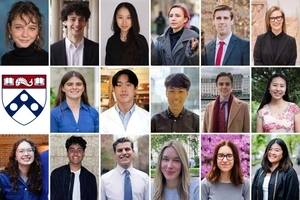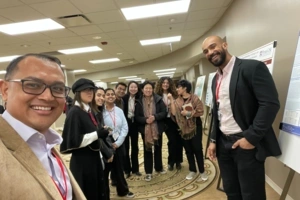This year’s Penn Global Engagement Grant Program has once again selected a project from Amrit Thapa, senior lecturer in Penn GSE’s International Educational Development Program, for funding. This is Thapa’s third Global Engagement Grant.
The grant program supports scholarly initiatives that expand knowledge and develop globally impactful solutions, emphasizing interdisciplinary collaboration to address key global challenges.
Thapa’s grant is supporting his project “Climatic Hazards, Schooling, and Learning in Sub-Saharan Africa,” for which he and his collaborators (from Penn GSE and across Penn’s departments of sociology and economics) are using UNICEF’s Multiple Indicator Cluster (MIC) data to conduct quantitative analysis of the effects of floods, extreme heat, drought, and other dangerous climate extremes on learning in Kenya, Uganda, Tanzania, Benin, Côte D’Ivoire, and Ghana.
“Climate hazards are huge problems in many low -and middle-income countries, and of course, Sub-Saharan Africa is not an exception,” said Thapa. “They are struggling very badly, and so we are going to look into how these climatic hazards affect children's schooling and learning. And we also want to find out whether these effects ae different for different populations. For example, are marginalized populations more affected? Are they able to mitigate the effect as well as other populations?”
This work builds on Thapa’s earlier Penn Global-supported work on the effects of floods in rural India on children’s learning.
“We found out that the floods do affect children's learning, and it affected those children that were marginalized much more than other kids,” he said of that research, which resulted in papers in The Russel Sage Foundation Journal of the Social Sciences and The Economics of Education Review.
Last year, Thapa’s Penn Global Engagement Grant supported his work on education and economic development in Nepal—work that is meant to inform sustainable development efforts.
“I feel very blessed to be supported by the university with these grants,” he said. “It really sends a very encouraging message to early- or mid-career researchers like me. I feel very appreciative and grateful, and I’d really like to express my gratitude to Penn Global for trusting me to help further the conversations on these important topics.”
Media Inquiries
Penn GSE Communications is here to help reporters connect with the education experts they need.







